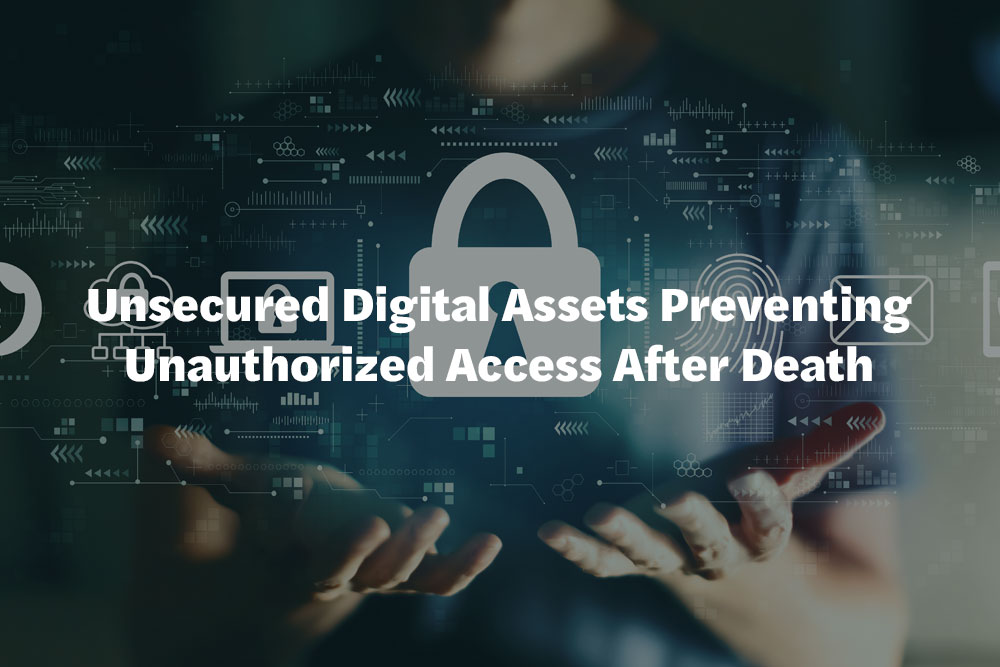In our digital age, a significant portion of our personal and financial lives exists online. From social media accounts to online banking, these digital assets require careful planning to ensure they remain secure even after our death. Without proper precautions, these assets are vulnerable to unauthorized access and misuse. At Allenby Law, we guide our clients through securing their digital legacies, ensuring peace of mind and protecting their digital presence after they pass away.
Understanding the Risks to Unsecured Digital Assets
Digital assets, if left unsecured, can be targets for cybercriminals. These might include email accounts, social media profiles, financial accounts, and any other online services that hold sensitive personal information or intellectual property. The risks range from identity theft and financial fraud to the misuse of personal data.
Strategies to Secure Digital Assets
- Inventory of Digital Assets: Create a comprehensive list of all your digital assets, including login details, passwords, and answers to security questions. This list will be vital in helping your digital executor understand and manage your digital estate.
- Appoint a Digital Executor: Designate a trusted individual who is tech-savvy to act as your digital executor. This person will be responsible for managing your digital assets according to your wishes after your death.
- Utilize Secure Storage Solutions: Store your sensitive login information in secure platforms like digital password managers. These services often offer options for legacy or emergency access, allowing you to grant access to a designated individual after your death without compromising your security while you are alive.
- Include Digital Instructions in Your Estate Plan: Clearly outline how each digital asset should be handled after your death. Whether it’s closing accounts, transferring ownership of digital files, or maintaining online profiles, these instructions should be explicitly stated in your estate planning documents.
- Legal Authorization: Ensure that your will or estate plan legally authorizes your digital executor to manage your digital assets. This step is crucial to bypass the strict privacy policies of many digital service providers.
- Regular Updates: As you acquire new digital assets or as passwords and login information change, regularly update your digital asset inventory and your estate plan to reflect these changes.
Legal and Ethical Considerations
- Privacy and Consent: Be mindful of privacy laws and the consent required to access and manage someone else’s data, even after death. Make sure your digital executor is authorized through your estate plan to handle personal information and that their actions comply with applicable laws.
- Service Agreements: Understand the terms of service agreements for each digital platform, as they often have specific policies regarding the death of a user. Some services may offer options for memorializing or deactivating accounts upon proof of death.
- Secure Transition: Ensure the transition of your digital assets to your digital executor is secure. Avoid sharing sensitive information through insecure means.
Securing your digital assets is an essential component of modern estate planning. By taking proactive steps to manage these assets, you can prevent unauthorized access and ensure your digital legacy is handled according to your wishes. At Allenby Law, we specialize in helping clients secure their digital and physical legacies alike. Contact us today to learn how we can assist you in protecting your digital assets and ensuring your digital estate is as secure and well-planned as your physical one.



